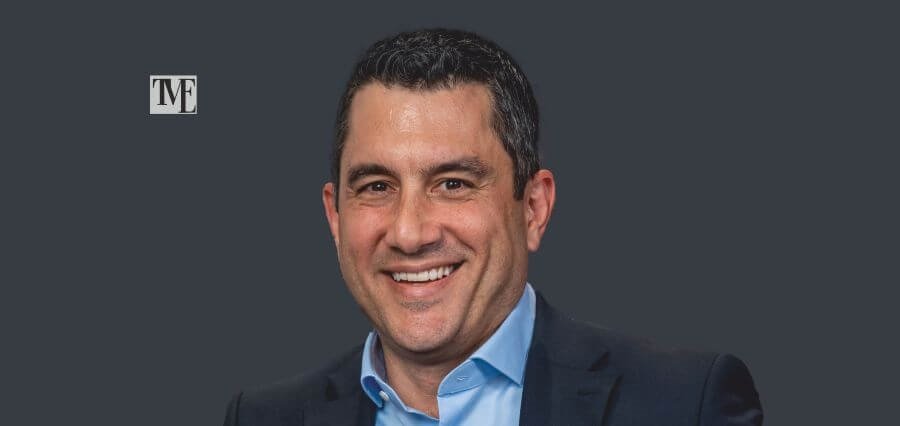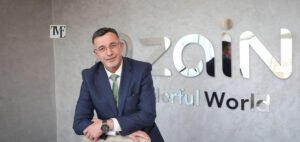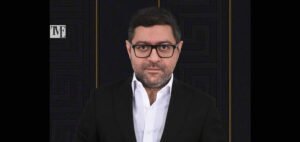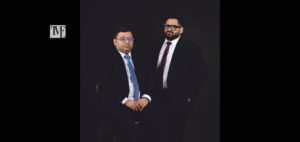Reshaping Business Solutions!
The technology sector continues to redefine industries, offering solutions that enhance efficiency, scalability, and innovation. As businesses increasingly shift towards digital frameworks, the need for robust, adaptable ecosystems is paramount. Open-source technologies are transforming how companies operate, offering flexibility while developing collaboration between partners and customers. In regions like the Middle East and Africa, where diverse market needs require agile and customized solutions, technology drives business growth and opens new avenues for socio-economic development. This progress signals a shift from merely implementing technological tools to growing ecosystems that can deliver sustainable transformation.
At the core of this transformative movement is Burak Borhan, who currently serves as the Regional Director and Head of the Middle East and Africa Partner Ecosystem. Burak’s leadership is defined by his forward-thinking approach, as he brings a unique blend of strategic insight and cultural intelligence to his role. His focus is solely on technology and cultivating collaborative innovation through partnerships across diverse regions. With a strong focus on nurturing talent and aligning strategic goals with market realities, Burak is redefining how technology ecosystems contribute to genuine transformation.
RedHat, under Burak’s leadership, has positioned itself as a leader in the partner ecosystem space, particularly in the Middle East and Africa. The company’s commitment to open-source principles and digital transformation enables it to provide customers with flexible, scalable solutions that meet the ever-changing demands of the industry. Through strategic alliances and a focus on innovation, RedHat continues to build robust networks that empower businesses to achieve their digital goals while maintaining the agility needed to thrive in competitive markets.
Let’s explore Burak’s strategic leadership journey in the technology sector:
Building Ecosystems for Genuine Transformation
Burak’s career choices have always been driven by three interconnected principles: The opportunity to drive meaningful change, the potential for continuous learning, and strong cultural alignment. He believes that true impact happens when these elements converge—when one finds themselves in an environment that not only challenges them to grow but also empowers them to make a real difference.
At HP, this philosophy led to one of his career’s defining moments—establishing the indirect TELCO strategy in Turkey, which was transformed into EMEA’s fastest-growing TELCO channel. This success opened the door to an even bigger challenge: relocating to Dubai to spearhead HP’s expansion into 12 new African markets. These experiences weren’t just about business growth; they were about building ecosystems that could drive genuine transformation across diverse markets.
His transition to SAP as head of strategic partnerships for the Middle East allowed him to further this vision, securing some of the company’s largest deals in the UAE. These achievements reinforced his belief in the power of collaborative partnerships and their ability to drive meaningful change. Now at Red Hat, leading the partner ecosystem for the Middle East and Africa, he is combining all these experiences to create innovation through open-source principles and strategic partnerships.
Throughout this journey, each role has deepened his understanding of how technology can catalyze transformation across diverse markets and cultures. It’s not just about implementing solutions; it’s about creating lasting impact through collaborative innovation and strong partnerships.
Enabling Digital Transformation Across Regions
Leading Red Hat’s partner ecosystem in the Middle East and Africa is a role that perfectly aligns with Burak’s passion for building collaborative networks that drive innovation. His primary focus is developing strategic partnerships that enable digital transformation across this diverse region while ensuring the ecosystem remains resilient and adaptive to market dynamics.
Key to this is developing relationships with partners who share a commitment to open-source principles and customer success. He focuses on removing obstacles to their growth while providing development opportunities. This approach has proven successful across different markets and cultures throughout his career.
Building high-performance teams is crucial; this is fundamentally a people business. He prioritizes recruiting and nurturing talent within the Partner Ecosystem team, implementing robust performance management systems while promoting a culture of collaboration. This balance between strategic direction and people development has transformed the ecosystem from a support function to a key driver of innovation and growth.
Continuous Learning as a Leadership Principle
His leadership style naturally grew from these ecosystem-building experiences across diverse markets and cultures, shaped by a belief in the power of collaborative innovation. Early in his career at HP, leading channel sales across Africa taught him the importance of adaptability and cultural intelligence—skills that became foundational to building strategic partnerships at SAP and now at Red Hat.
Burak highlights a coaching approach centered on people development while strongly focusing on results. By creating an environment where team members feel valued and empowered, they cultivate innovation and exceed targets. This comes from the understanding that in the technology sector, particularly in partner ecosystems, success is built on relationships and trust.
His commitment to continuous learning fundamentally shapes his leadership approach. By actively pursuing professional development and encouraging the same in others, he demonstrates that growth is a constant journey, not a destination.
Leaders must embody the curiosity and adaptability they wish to cultivate in their teams. This mindset has enabled him to build high-performing teams across different organizations and regions, driving sustainable growth through collaboration and innovation.
Investing in Talent Development
According to Burak, in today’s tech environment, sustainable growth requires what academics call ‘organizational ambidexterity’—the ability to excel in current markets while simultaneously exploring new opportunities. Drawing from his experience across global markets, Burak has found several strategies crucial for long-term success.
The technology industry has evolved from simple vendor relationships to intricate partner ecosystems, requiring organizations to be increasingly adaptable and collaborative. First is building robust partner ecosystems that extend beyond traditional channel relationships.
At Red Hat, the focus is on creating value-driven partnerships that enhance collective capabilities. This approach has proven successful across different regions, from established markets to emerging economies.
Equally important is promoting a culture of innovation while maintaining operational excellence. This means empowering teams to experiment and adapt while ensuring consistent delivery. Having led initiatives across diverse markets—from Turkey to Africa—he has learned that successful innovation must be balanced with local market realities.
Investment in talent development is also critical. Technology evolves rapidly, and organizations must create environments where continuous learning is encouraged and rewarded. This includes embracing digital transformation while maintaining the human elements that drive true innovation.
By integrating these elements—strong partnerships, balanced innovation, and talent development—organizations can build the resilience needed to thrive in the industry.
Clear Communication for Effective Change Management
He believes managing resistance to change in intricate organizations requires a deep understanding of both business and human dynamics. Throughout his career, particularly during major transformations at global tech companies, Burak has developed an approach that balances strategic vision with emotional intelligence.
Clear communication is fundamental by articulating not just the what and how but the why of change, stakeholders understand their role in the transformation journey. This transparency builds trust and reduces uncertainty—something he has found particularly crucial in diverse regions like the Middle East and Africa, where cultural nuances significantly impact change adoption.
He advocates for the ‘choice cascade’ approach—setting clear context for decisions while empowering teams to shape implementation. This strategy, well documented in change management literature, creates genuine ownership and reduces the resistance that often stems from feeling like ‘choiceless doers.’ When leading HP’s expansion into new African markets, applying this principle proved invaluable in building local team buy-in while maintaining global standards.
Success in change management ultimately comes down to people. By focusing on emotional balancing—acknowledging concerns while maintaining forward momentum—an environment is created where transformation feels like an opportunity rather than a threat.
Enhancing Solutions with Local Expertise
Building on the principles of organizational ambidexterity and effective change management, Burak has found that successful long-term partnerships combine strategic alignment with human connection. Through years of developing partner ecosystems across different markets, he has identified several crucial elements that consistently drive success.
Trust and transparency form the foundation. This means moving beyond transactional relationships to create genuine strategic alliances where all parties are invested in mutual success. At Red Hat, this approach enables partners to confidently drive innovation and tackle intricate customer challenges.
Strategic alignment is crucial but must be balanced with flexibility. Partners need to share core values while maintaining their unique strengths. This has been particularly evident in work across the Middle East and Africa, where partners often bring invaluable local expertise that enhances global solutions.
Most importantly, partnerships are fundamentally about people. While focusing on formal governance and value creation, the human connections—understanding each other’s aspirations and challenges—ultimately determine success. It’s about creating an environment where both organizations can grow and innovate together.
Optimizing Tasks with Technology for Better Balance
Leading strategic initiatives across multinational regions demands significant energy and focus. Over the years, Burak has learned that maintaining balance isn’t just about time management—it’s about energy management and finding harmony between professional drive and personal fulfillment.
He is passionate about continuous learning and growth, both professionally and personally. Whether it’s sailing, kite surfing, or playing the violin, these activities provide not just relaxation but also valuable perspectives that often translate into business insights. For instance, the discipline required to master a musical instrument parallels the patience and persistence needed in building successful partner ecosystems.
Technology plays a crucial role in his approach to balance. Using productivity tools and methodologies helps optimize tasks and create space for what matters most—whether that’s strategic planning with partners or quality time with family. The key is setting clear boundaries while remaining flexible enough to adapt to business demands.
This balance can be challenging, but maintaining it is crucial for sustained leadership effectiveness. By modeling this approach, he hopes to encourage his team to find their own harmony between professional excellence and personal well-being.
Creating a Culture of Innovation and Learning
Just as Burak’s journey has been marked by continuous learning, staying ahead in the industry requires creating an environment where innovation and learning are part of the cultural DNA. At RedHat, the power of open-source principles and collaborative innovation is tapped into, drawing from a global network of insights and ideas.
Building a holistic partner ecosystem has proven invaluable in this regard. RedHat’s partners bring diverse perspectives and experiences from different markets and industries, creating a rich tapestry of insights that helps anticipate and respond to emerging opportunities. This collaborative approach has been particularly effective in regions like the Middle East and Africa, where market dynamics vary significantly across countries.
Professional development is embedded in the team culture. RedHat encourages continuous learning through various channels, from formal training programs to collaborative problem-solving sessions with partners. This commitment to growth ensures agility and responsiveness to market changes.
Most importantly, RedHat maintains a data-driven approach while staying connected to on-ground realities through the partner network. This balanced perspective helps identify meaningful trends versus temporary market fluctuations.
Cultivating Curiosity and Resilience in Tech
Having steered various leadership roles across global tech organizations, Burak’s advice to emerging leaders’ centers on balancing strategic thinking with authentic leadership. First, “Invest in developing a strategic mindset—understand market dynamics and recognize that the industry’s success is built on relationships and trust.”
Cultivate curiosity and resilience. The tech industry grows fast, and leaders must be comfortable with continuous learning and adaptation. Throughout his career, every role has brought new challenges that required fresh perspectives and approaches.
Building and nurturing strong relationships is crucial. Whether with team members, partners, or stakeholders, authentic connections create the foundation for successful collaboration. This becomes particularly important when leading across diverse markets and cultures.
Remember that leadership is about enabling others’ success. Focus on building high-performing teams by identifying and nurturing talent, removing obstacles, and creating growth opportunities. A leader’s success is ultimately measured by their team’s achievements and development.
Finally, maintain perspective. Technical expertise is important, but understanding the human elements of business is equally crucial. Balancing professional growth with personal development makes one not just a better leader but also a more insightful and resilient one.
Vision for Sustainable Growth in Tech
In the Middle East and Africa, Burak’s vision centers on building a partner ecosystem that drives genuine transformation and sustainable growth. The focus is on enabling customers to embrace open hybrid cloud technologies at their own pace, allowing organizations to run applications and workloads consistently across any footprint—whether on-premises, at the edge, or in the cloud. This isn’t just about technology adoption; it’s about enabling digital sovereignty and supporting local innovation.
Channel business is fundamentally about people, and he is proud to lead an exceptional team in the region. The priority is investing in continuous development, ensuring partners remain at the forefront of technology trends and customer needs. The goal is to build not just a network but a community of expertise that can address intricate digital transformation challenges.
In a region characterized by diverse market dynamics, building resilience in the ecosystem is crucial. The focus is on developing strategic partnerships that can withstand market challenges while maintaining consistent service delivery.
Success means creating an ecosystem that’s not just profitable but transformative for the region—where partners independently drive end-to-end solutions and contribute significantly to digital transformation.
When the ecosystem empowers organizations to transform while maintaining flexibility, security, and control over their digital journey—that’s when he knows they are truly making a difference in the region.





